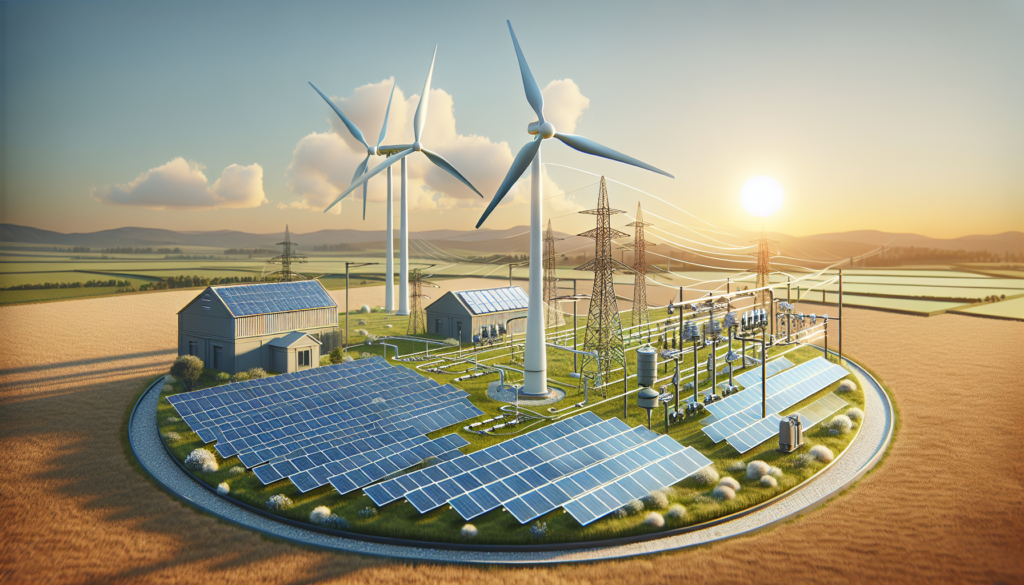Introduction
As the world moves toward sustainable energy solutions, private households and companies can play a dual role in the energy ecosystem. These entities, known as prosumers, not only consume energy but also produce it, particularly through renewable sources like solar panels or wind turbines. This concept holds enormous potential for energy transition, with private households, small and medium-sized enterprises, and industrial users contributing to cleaner, more decentralized energy production.
Prosumers in the Energy System
Traditionally, consumers have relied solely on utility companies for power, but advances in renewable energy technology allow individuals and businesses to become both consumers and producers. Households with solar panels, for instance, can generate excess electricity and feed it back into the grid. Similarly, industrial facilities can harness renewable energy sources to cover their own energy needs and contribute to grid stability.
- Residential Prosumers: Households can use photovoltaic systems to reduce electricity bills while supporting the broader transition to renewable energy. In addition, incentives and feed-in tariffs allow them to sell excess energy back to the grid.
- Industrial and SME Prosumers: Small and medium enterprises, as well as larger industries, are also embracing this trend. By installing solar panels or wind turbines, they can offset energy costs and ensure a reliable energy supply, especially in regions with unstable grids.
Regulation Challenges
Despite its potential, the integration of prosumers into the power grid faces regulatory hurdles. Current regulations are not fully adapted to accommodate a large number of prosumers. Key areas for improvement include:
- Simplified Procedures: Streamlining the process of obtaining prosumer status and reducing bureaucratic delays.
- Fair Compensation Models: Ensuring that prosumers are compensated fairly for the energy they feed into the grid, while avoiding penalties for excess energy supply in countries where this occurs.
- Incentives: Governments should create more favorable policies to encourage prosumers, such as tax reductions, grants for energy storage systems, and easier access to the grid.
Technical Challenges
To fully unlock the potential of prosumers, several technical upgrades to the energy infrastructure are needed:
- Smart Meter Roll-out: Faster deployment of smart meters to ensure accurate measurement of energy production and consumption.
- Energy Storage Solutions: Increased focus on developing affordable and efficient storage units, allowing prosumers to store energy for later use or when the grid demands it.
- Grid Modernization: The grid needs to be upgraded to handle bi-directional energy flows, especially with the growth of decentralized renewable energy sources. Improved grid connections will reduce bottlenecks.
- Sector Coupling: Linking the electricity, heating, and transport sectors will help optimize energy usage and improve system efficiency.
Bigger Prosumers & Medium/High Voltage Connections
Larger prosumers, such as industrial sites or large-scale renewable installations, face additional challenges. When connected to medium or high-voltage grids, these prosumers must carefully manage energy storage and consumption.
- Energy Storage at Scale: Companies generating energy on the scale of megawatts must consider how to efficiently store energy locally to reduce grid reliance.
- Feeding Energy to the Grid: While excess energy can be sold back to the grid, grid capacity must be available to handle these inputs. Some countries impose penalties on prosumers for injecting surplus energy when it is not needed, making local storage solutions crucial.
Conclusion
The prosumer model offers immense opportunities for reducing energy costs, improving grid stability, and accelerating the shift to renewable energy. However, realizing this potential will require coordinated efforts from regulators, utility companies, and prosumers themselves to address both regulatory and technical barriers. By fostering better integration, we can ensure that prosumers contribute meaningfully to a cleaner and more resilient energy future.
MilovanInnovation will continue to follow this subject closely, providing insights, news, and in-depth analyses on the evolving role of prosumers in the energy transition.


Leave a Reply